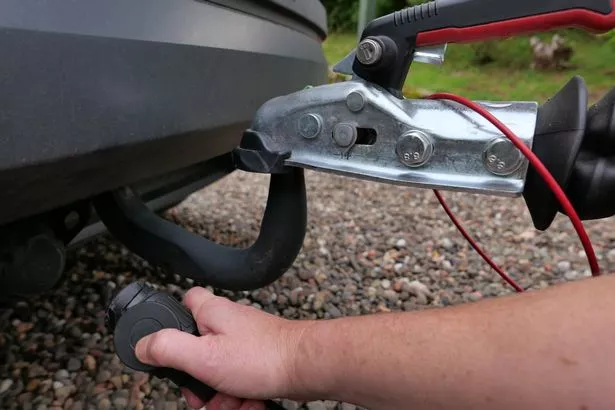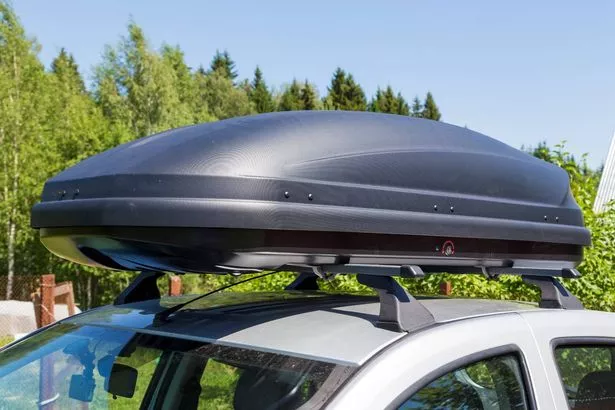


Many motorists will be looking to transport more items, such as Christmas presents and luggage, during the winter so here’s what you need to know before making modifications to your car
Motorists planning their winter trips have been warned even minor changes to their vehicles could void their insurance if not reported to their provider.
This could leave drivers uninsured or denied claims in the event of an accident. Even simple additions, like a roof rack or tow bar, could put your coverage at risk. Most insurance companies view anything beyond a manufacturer’s official accessory list as a modification.
While these small modifications may not significantly hike up your current premium, they could lead to your insurer refusing coverage if an accident happens. Bearing this in mind, we’ve looked into some common summer car modifications and how they might affect insurance premiums.
Many drivers want to carry more items, like Christmas presents and luggage, during the winter. Tow bars offer a convenient way to haul a small trailer or attach bike carriers to the back of the car.
It might seem obvious, but installing a tow bar suggests you’re likely to be towing trailers, caravans, or large items, increasing the vehicle’s risk on the road. Moreover, most insurers see fitting an aftermarket tow bar as a modification, meaning they must be informed.
READ MORE: Teenager killed in horrific crash following police chase where car landed on its roofIn most instances, insurers will simply make a note on their systems and no additional charges are added. However, some customers may see their premiums increase, so it’s worth shopping around to find the best deal.
Adding roof bars or a roof rack could alter your vehicle’s insurance profile, as some providers might view it as an additional risk. This could be due to potential changes in how the vehicle handles or increased chances of theft or damage.
Aftermarket roof racks and roof bars (those not fitted at the factory) are considered modifications, so it’s wise to inform your insurer if you’ve added these. While there have been horror stories of insurers canceling policies upon notification of a modification, it’s more likely they’ll add a note to the policy or charge a small amendment fee.
Window tints can add a certain aesthetic to your vehicle and reduce potentially harmful and distracting sunlight during the brighter summer months. The law states that vehicles first used on April 1, 1985 or later must have a front windshield that lets at least 75 percent of light through and the front side windows must let at least 70 percent of light through.
Traffic cops are often armed with light measuring tools that scrutinize window tint, and they can dish out instant fines for anything that breaches the rules. Even if your car’s window tinting is within the law, it could still dent your insurance policies as it is seen as a modification.
Plus, specially tinted glass can be more expensive to fix or replace, potentially hiking up the cost of your monthly or annual insurance premium. If you’re not up for a road trip, perhaps sprucing up your car with new wheels and bodywork might tickle your fancy.
Alloy wheels are a sought-after vehicle modification, often chosen to reduce the weight of heavy steel alternatives and give motors a sportier look. If these weren’t installed by the manufacturer, adding them is seen as a vehicle modification, so it’s vital to let your insurer know.
If alloy wheel theft is rampant in your area, this could push up your premiums. However, even changing wheels is such a routine practice, it usually doesn’t lead to hefty financial penalties.
Conversely, insurers often disapprove of adding flashy body kits or extra body work to a standard engine. These sporty kits can change a vehicle’s handling and driving capabilities and are typically not built to the same crash standards as the OEM kit.
They’re more prone to damage or shattering in a crash, leading to costly repairs for the insurer and potential harm to other vehicles and pedestrians. Insurance experts Adrian Flux have disclosed that adding a body kit to your motorcycle could potentially increase your premium by 10-15 percent.
They recommend considering a specialist modified vehicle policy for such alterations. Many car buffs use the longer, warmer days to engage in some DIY mechanic work, including engine upgrades and performance enhancements.
Modifications from air filter replacements to aftermarket exhaust systems can boost vehicle performance and change its driving dynamics. It’s vital to notify your insurance provider about these modifications to ensure you’re adequately covered.
Interestingly, upgrading your brakes and suspension system to superior parts could potentially reduce your insurance premiums if your provider views it as a significant safety improvement. There’s nothing more monotonous than being stuck in traffic on a long journey with only FM radio for entertainment.
This is likely why many owners of older cars opt to upgrade their in-car entertainment systems. Luckily, fitting a head unit compatible with Apple CarPlay and Android Auto is unlikely to hike your insurance premiums, but it’s still wise to let your insurer know. However, keep in mind that a top-of-the-range head unit could make your vehicle more attractive to thieves, potentially pushing up your premiums.
If you don’t inform them, some insurers might not cover the cost of stolen or damaged infotainment equipment if it differs from the standard kit fitted to the car.
Source link

اترك تعليقاً